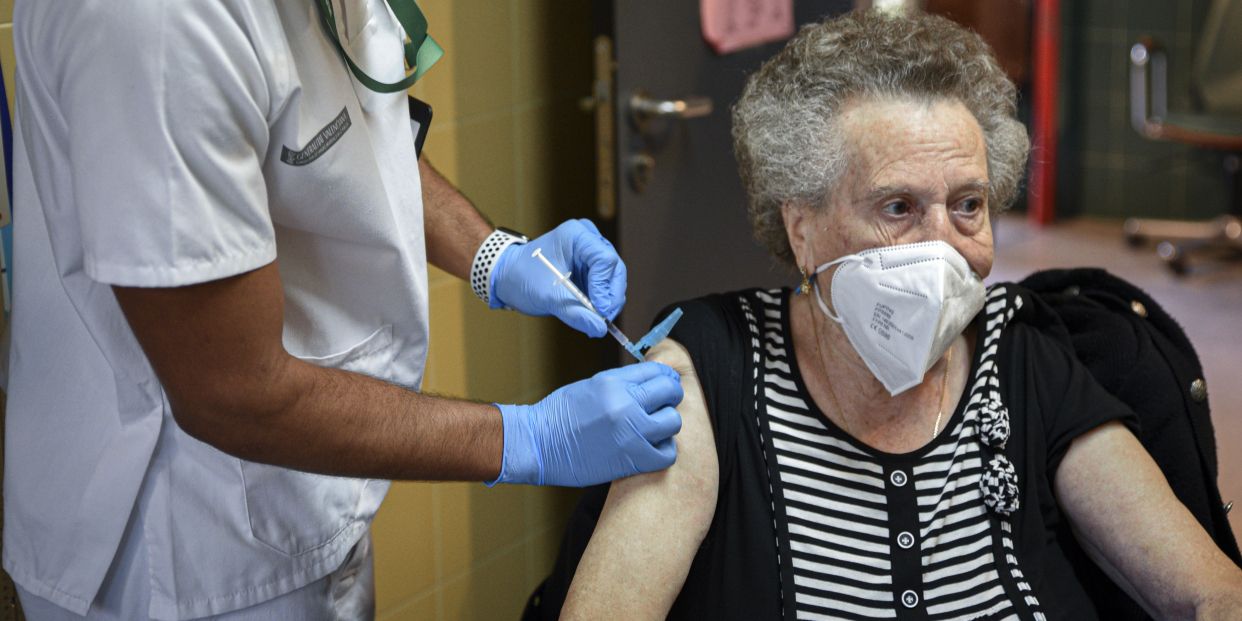Only 44% of Spaniards claim to be willing to be vaccinated during the current anti-flu campaign This figure is lower than predicted for 2022 (49%), according to the Spanish Influenza Vaccine Observatory 2023.
Similarly, the willingness to be vaccinated among people over 60 years old has also declined, from 80% in the last campaign to 74%, which will not achieve the vaccination rate set by public health. This is reflected in the third edition of the flu vaccine awareness study conducted by social research consultancy GAD3 with support from CSL Seqirus.
Javier Castrodeza, head of Spain’s Preventive Medicine Service, said University Clinical Hospital of Valladolid “There is a clear need to reflect on how to once again raise awareness of the importance of influenza vaccination so that the proportion of the population that is eventually vaccinated does not continue to decline,” said the professor of preventive medicine and public health at the University of Valladolid. reduce. “”We must never forget that influenza is a public health issue“, added.
This could help promote vaccine culture as health conditions normalize following the Covid-19 pandemic, according to the study of 2,206 people. Society’s positive view of vaccines drops again in 2022-2023 campaign As a protective and preventive tool against infectious respiratory diseases.
So, research shows that while last year 23.9% of respondents claimed Covid-19 had made them more aware of the importance of vaccination, this year this number plummeted to 5.9%.
As far as the current vaccination campaign is concerned, people’s willingness to be vaccinated remains the main reason for vaccination. Protect yourself from viruses in general (57.3%), although the proportion is also much lower than the previous election, and another 49.2% think it is necessary Get a flu shot every year.
on the other hand, Only 40% of Spaniards consider getting both flu and Covid-19 vaccines an improvementwith older respondents being the ones in favor of the measure.
Lack of prescriptions is the main reason for not getting vaccinated
According to the study results, compared with the previous year, the proportion of medical staff lacking prescriptions increased from 51.4% to 66.3%, becoming the main reason for not getting vaccinated. Apart from, The proportion of respondents who downplay the disease has increased (39.1%) and do not think it is a serious virus.
Likewise, 81.2% of Spaniards affirm There is not enough information to consider whether vaccination is needed, and prescription by a medical, health care or pharmaceutical provider remains the most important factor people consider when deciding to get vaccinated. This year, the number of respondents claiming to obtain information this way fell from 39.5% to 19.2%.
On the contrary, there is an increase in the number of Spaniards who know about influenza vaccination campaigns through the media (39.4%) and the public administration or the national health system (24%).
Camino Prada, Doctor of Applied Research in Health Sciences and Associate Professor of Preventive Medicine and Public Health at the University of Valladolid, emphasizes “Healthcare workers play an important role as prescribers of influenza vaccines”. He added: “Across the three versions published so far, this study shows us that your stance on the matter directly affects people’s final decisions when it comes to getting the flu vaccine.”
Ignorance of risk groups persists
Correct identification risk group This is another key point for a successful flu vaccination campaign. In this sense, 73% of respondents believe that those over 60 years old are the target group.
However, awareness of other risk groups has declined, e.g. People with respiratory diseases (28.4%), Patients with chronic illness or immunocompromised (20%) and emphasizes the minimum degree of recognition in Pregnant women and people living with high-risk patients (6.3% and 0.9% respectively).
Due to the characteristics of influenza, people over 60 years old with a medical history are the group whose lives are most affected. As a result, 68% of the population is in favor of purchasing a specific vaccine for those over 60 years old, regardless of price, with respondents aged between 30 and 59 being the most in favor. This measure is shown to be higher than the affected age group.
Professor Pepe Martínez Olmos said Andalusian School of Public Health (EASP), it is “very important” to assess the cost-effectiveness of using vaccines that enhance immunogenicity. He concluded: “Influenza causes health complications for many people every year, a large proportion of whom are over 60 years old, and has a huge economic impact.”

